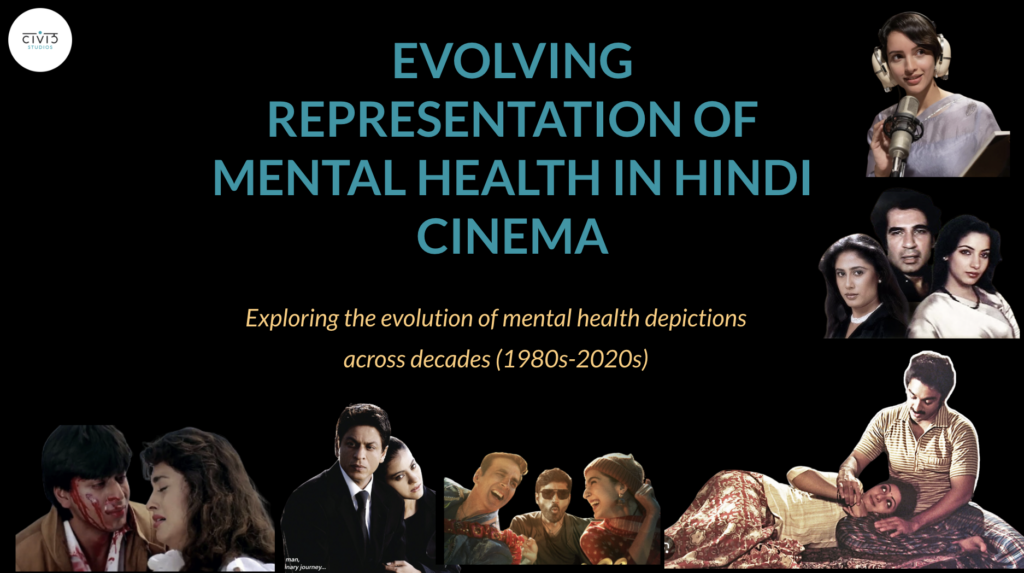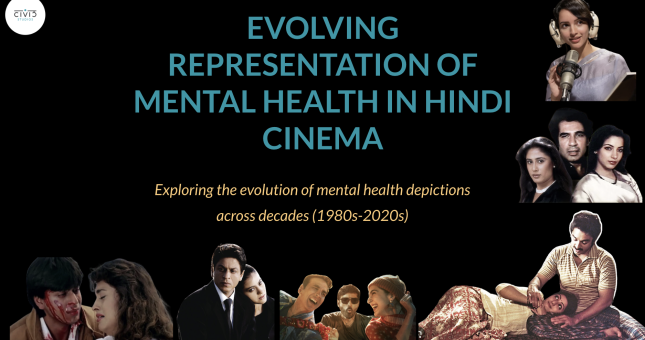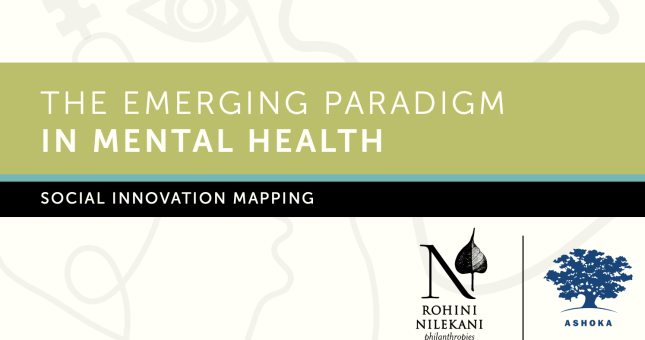
As part of Mannotsava, our National Mental Health Festival held on October 26-27, the Rohini Nilekani Philanthropies commissioned a study with Civic Studios to examine the evolution of how mental health is portrayed in cinema.
Films play a powerful role in shaping public perceptions. Inaccurate or sensationalised depictions can reinforce stereotypes, leading to misunderstanding and social isolation for individuals experiencing mental health conditions.
Accurate representation is crucial not only for promoting awareness and empathy, but also for encouraging people to seek professional help by normalizing therapy, recovery, and emotional well-being. It can shift societal narratives from judgment and fear to acceptance and support, reducing stigma and fostering healthier conversations around mental health.
Importantly, modern portrayals are beginning to incorporate mental health issues into everyday settings, moving away from institution-centered narratives of earlier decades.
This shift reflects a broader cultural change toward destigmatizing therapy and emotional vulnerability, contributing to a more empathetic and inclusive mental health discourse.
Mannotsava featured a panel discussion titled Reel Vs Real : The Changing Representation of Mental Health in Indian Cinema to delve deeper into this theme, featuring M K Raghavendra (Freelance Film Critic), Andre Jaime Borges (Pocket Aces) & Apoorva Arora (Artist), moderated by Kashmira Patil (Civic Studios). Watch the panel discussion here!
Civic Studios also curated a compelling poster presentation at our festival, analyzing a few Bollywood films that explored facets of mental health struggles from the 1990s to the 2020s. These films were spotlighted through the lens of the mental health disorders they depicted, incorporating an analysis of pivotal dialogues, portrayals of treatment, societal stigma, and the intersection of gender within these narratives.


